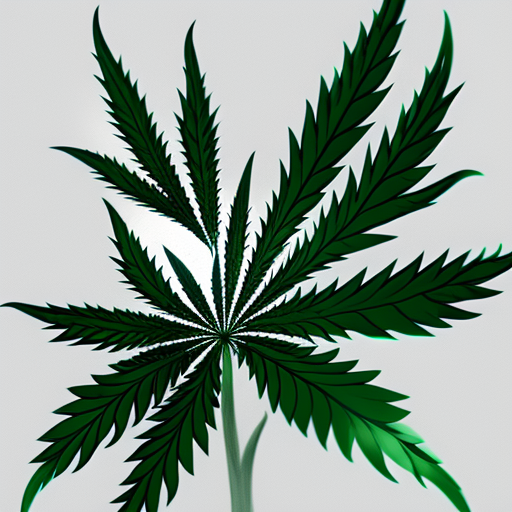
Yo, what’s good? It’s your boy Dan, and today we’re talking about whether or not cannabis has a place in psychotherapy. The short answer? It’s complicated, but there’s evidence that the THC and CBD in weed can help those with mental health conditions.
The human brain is super complex, and so is the cannabis plant. But could cannabis be the next big thing for treating mental illnesses? Right now, there’s no evidence that cannabis use causes chronic brain disorders, but it can cause some “psychotic symptoms” in people who are already vulnerable due to personal or family history of mental illness.
But check it – a lot of patients with schizophrenia, paranoia, bipolar disorders, and other mental conditions have been self-medicating with cannabis for years. Doctors in the US who prescribe medical cannabis say that very little of it goes to patients with severe psychiatric conditions (PTSD being the most common accepted condition). Some psychiatrists advise against using weed, while others approve it as a complementary treatment for patients with specific symptoms or diagnoses.
People who use weed might say it helps relieve some of their symptoms, but the studies on using it for mental health conditions aren’t that great. That being said, therapy should be an opportunity to be real with your therapist about your relationship with weed. You shouldn’t feel judged for using it if it makes you feel better.
Psychedelic psychotherapies are becoming more accepted by the scientific community. Weed might not be a psychedelic in the strictest sense, but in places where it’s legal, people are offering assisted psychotherapy sessions under the effects of cannabinoids. Some US states even offer cannabis-assisted psychotherapy for around $350 – but you gotta have someone drive you home afterwards.
Different mental illnesses require different care and treatment, so cannabinoids might affect them in different ways. Let’s look at some of the research on how weed could help people who struggle with mental health issues.
THC can make people feel more relaxed and less stressed, but it can also trigger anxiety and paranoia in inexperienced users. Interestingly though, CBD can reduce some of these negative effects by lowering THC’s ability to bind with CB1 receptors. While CBD is gaining more traction as a future treatment for psychological disorders, THC itself seems to help people with bipolar disorders. Bipolar disorder involves periods of maniacal high energy alternating with periods of extremely low mood and depressive episodes. Cannabis use is actually higher in bipolar patients because they use it to alleviate depression and come down from manic episodes too.
But studies on patients with bipolar disorder or schizophrenia using cannabis haven’t had great results. They’re pretty inconclusive when it comes to gauging the medical efficacy of THC and its specific use cases. Studies have observed that cannabis use was associated with better neurocognitive function in subjects with bipolar disorder, but the opposite was found in schizophrenic subjects.
CB1 receptors are widespread throughout the brain and recent neuroimaging techniques have shown increased CB1 receptors in multiple brain regions linked to post-traumatic stress disorder (PTSD). Cannabinoids affect the hippocampus, an area of our brain that plays a role in learning and memory. This area is important for anxiety disorders like PTSD because it contributes to the mechanisms of danger and safety.
Millions of patients with anxiety disorders report that cannabis provides relaxation, serenity, and a calming effect. PTSD patients report that cannabis helps them with insomnia, anxiety, and mood swings too. But again, studies on THC efficacy vary depending on who you talk to.
When people talk about “cannabis” and “schizophrenia”, they usually focus on how weed can cause mental health issues. While there is a link between THC (the psychotropic cannabinoid) and the cognitive condition (frequent use at a young age doubles the risk of schizophrenia development), researchers are looking at other cannabinoids to try and tackle it. A recent study administered 1000mg of CBD daily to patients with schizophrenia alongside their existing medication over six weeks. The researchers claim that CBD doesn’t depend on dopamine D2 receptors (the gene codes for this site are linked to mental health conditions) and likely stems from interactions with ECS enzymes TRPV1 and serotonin receptor interaction and partial interaction with the D2(high) receptor.
At the end of the day though, we still don’t know enough about how cannabinoids interact with our minds to say one way or another whether they’re effective treatments for mental illnesses. But we do know that cannabinoids target different neurotransmitter systems than traditional drugs do – potentially making them more effective and less disruptive.
So what should you do if you’re thinking about using weed as a treatment for your mental health issues? Talk to your therapist or doctor first – especially if you’re already taking other medications. They’ll be able to give you personalized advice that takes into account your specific circumstances.
And remember – just because weed helps some people doesn’t mean it will help everyone. But keep an open mind – you never know what will work until you try it out yourself!




Man, I feel like weed got a big role in helpin people chill and deal with they issues. It can ease the mind and bring some peace, ya know? Ain’t nothin wrong with usin it to find relief.
Ayo, I feel like weed really help a lotta people chill and deal with they issues. It bring some peace and help with the stress. Therapy ain’t just talkin, sometimes you need that extra thing to get you through.
Man, I been sayin that weed got mad potential in therapy. It help folks chill and ease their minds, ya feel me? Ain’t no shame in using it if it bring relief.